Dr. Mardy's Quotes of the Week ("Mothers & Motherhood")
May 11—17, 2024 | THIS WEEK: “Mothers & Motherhood”
Even though the special nature of Mother’s Day has been tarnished by its over-commercialization, it will always remain special to me because of my great fortune to have had a truly remarkable mother: Lorna Krebsbach Grothe (1916-97)
I’m grateful to my mom for many things, but most of all for my lifelong love of reading. Despite only eight years of formal education in a one-room rural schoolhouse, she developed an early passion for reading that continued her entire life. When we were little tykes, all three Grothe kids eagerly looked forward to her reading stories to us at bedtime. And despite an exhausting work schedule—she was a full-time mom with a full-time outside job most of her life—she read for at least a half-hour every night before she went to sleep.
Following her lead, I became an avid reader well before I reached kindergarten, and a few years later, our weekly trips to the McClean County Library Bookmobile are still among my fondest memories. Almost every week, I’d finish all the books I checked out, and usually one or two she’d chosen for herself. When I was a high school junior, I was pleased to discover that Booker T. Washington had also been inspired to read by his mother. In a memorable passage from Up From Slavery (1901), he could’ve been speaking for me when he wrote:
A formal day to honor mothers has meant so much to me that, for most of my life, I’ve said Happy Mother’s Day to all the women I’ve run into on the holiday. Somewhere along the line, though, I stopped blithely expressing the sentiment after a woman I barely knew tearfully responded by saying it was the saddest day of the year for her. She explained that her only daughter had died—on Mother’s Day—a few years earlier.
If you’re a mother and you’re feeling happy today, consider yourself very fortunate. Sadly, though, there are far too many mothers who view Mother’s Day as the most bittersweet of holidays. They include mothers who’ve outlived a child, mothers who are estranged from a child, and—perhaps the largest group—mothers whose children either do nothing to commemorate the day or they do something that fails to reach a satisfactory threshold of caring. If any of this describes you and your situation, please know that my thoughts are with you as well.
Opening Line of the Week
The words come from 12-year-old Annis, the daughter of an enslaved black woman who was raped and impregnated by her white plantation slaveholder. In the opening paragraph, Annis continued:
“I was a small child then, soft at the belly. On that night, my mother woke me and led me out to the Carolina woods, deep, deep into the murmuring trees, black with the sun’s leaving. The bones in her fingers: blades in sheaths, but I did not know this yet.”
As the story unfolds, we learn that Annis’s grandmother was a fierce female warrior in the West African nation of Dahomey. Sold into slavery by her husband—the king of Dahomey—for falling in love with a soldier, she ended up on a plantation in North Carolina. Mama Aza, as she was known, passed along her warrior training methods to her daughter, and now, Annis’s mother is about to continue the tradition by taking her daughter deep into the woods to train her in the hand-to-hand combat skills of her ancestors.
I was delighted to honor Ward’s opener in my compilation of “The Best Opening Lines of 2023” (see the full list here).
I’m currently working on “The Best Opening Lines of 2025,” and if you’d like to nominate any candidates, e-mail them to me at: drmardy@drmardy.com. If you recommend a great opener I haven’t yet seen and it makes my final list, I’ll send you a personally-inscribed copy of one of my books.
This Week’s Puzzler
On May 9, 1936, this woman was born in Birkenhead, Cheshire, England. The daughter of a bricklayer, she caught the acting bug early, dropping out of school at age 16 to pursue her thespian dreams. Her budding talent as an amateur actor earned her a scholarship to London’s Royal Academy of Dramatic Art.
It took longer than she expected, but in 1964, at age 28, she finally burst on the acting scene with a stunning performance in Peter Weiss’s London play Marat/Sade. That’s the shorthand version of the title, by the way. The formal title is one of the longest in dramatic history: The Persecution and Assassination of Jean-Paul Marat as Performed by the Inmates of the Asylum of Charenton Under the Direction of the Marquis de Sade. This week’s Mystery Woman also starred in the 1965 Broadway production of the play as well as the 1967 film adaptation.
She went on to become one of the most acclaimed actors of her era. She won two Best Actress Oscar awards (in 1971 for “Women in Love” and in 1974 for “A Touch of Class”). She also won two Best Actress BAFTA awards (in 1971 for “Sunday Bloody Sunday” and in 1972 for her performance as Elizabeth I in BBC-One’s “Elizabeth R”). Her performance in “Elizabeth R” also went on to net her two Emmy Awards.
She took a break from acting in 1992 when she was elected to Parliament as a member of Britain’s Labour Party. She served in a number of government posts, before finally stepping down in 2015. Returning to acting, she continued to impress, winning a Best Actress Tony award for her performance in a revival of Edward Albee’s “Three Tall Women” And, finally, in 2019, she received a third Emmy for her portrayal of an elderly widow with Alzheimer’s disease in the BBC-One production of “Elizabeth is Missing.”
In a wide-ranging 1976 interview, she talked about every aspect of her life, including motherhood. Referring to her only son John, then seven, she famously said that “he had me” rather than the traditional phrasing (“I had him”), explaining:
“It is extraordinary how much you are theirs, and how little they are yours. The child grows inside you and there is something mystical and mythical in that, but then you actually see that you are nothing more than the box in which they come. There is this total person, already formed, themselves.”
And a moment later, she added:
Who is this woman? (Answer below)
A Brief History of Mother’s Day.
On May 10, 1908, a woman named Anna Jarvis organized the first formal celebration of Mother’s Day at a small church in Grafton, West Virginia. In conceiving the event, she was inspired by her own mother, Ann Jarvis, who fifty years earlier had organized a “Mother’s Friendship Day” to reunite families divided during the Civil War.
Her mother’s 1868 effort was less about honoring mothers than it was an attempt to heal some of the deep emotional wounds that still festered three years after the war ended. By all accounts, it was a festive occasion in which bands played both “Dixie” and the “Star Spangled Banner,” and the event ended with people joining together to sing “Auld Lang Syne.” Mrs. Jarvis had dreamed of one day seeing a formal holiday to specifically honor mothers, but it never happened in her lifetime. She died in Philadelphia at age 72 on May 9, 1905.
A year later, while privately honoring the first anniversary of her mother’s death, Anna told friends that she was planning a formal memorial service for her mother the next year—and she did exactly that with a small private service on the second Sunday in May in 1907.
On May 10, 1908, while living in Philadelphia, the 46-year-old Anna organized two separate events that are now regarded as the first official observances of Mother’s Day in America. The first was a morning service at Andrews Methodist Episcopal Church in her hometown of Grafton, West Virginia. Anna did not attend the service, but sent a telegram message as well as a donation of 500 white carnations for all in attendance.
In the afternoon, Anna organized a “Mother’s Day” service in Philadelphia that drew an unexpectedly large crowd of 15,000 people. The event was co-sponsored by John Wanamaker, a prominent Philadelphia merchant, and it seems quite plausible that he realized the commercial implications of such a holiday.
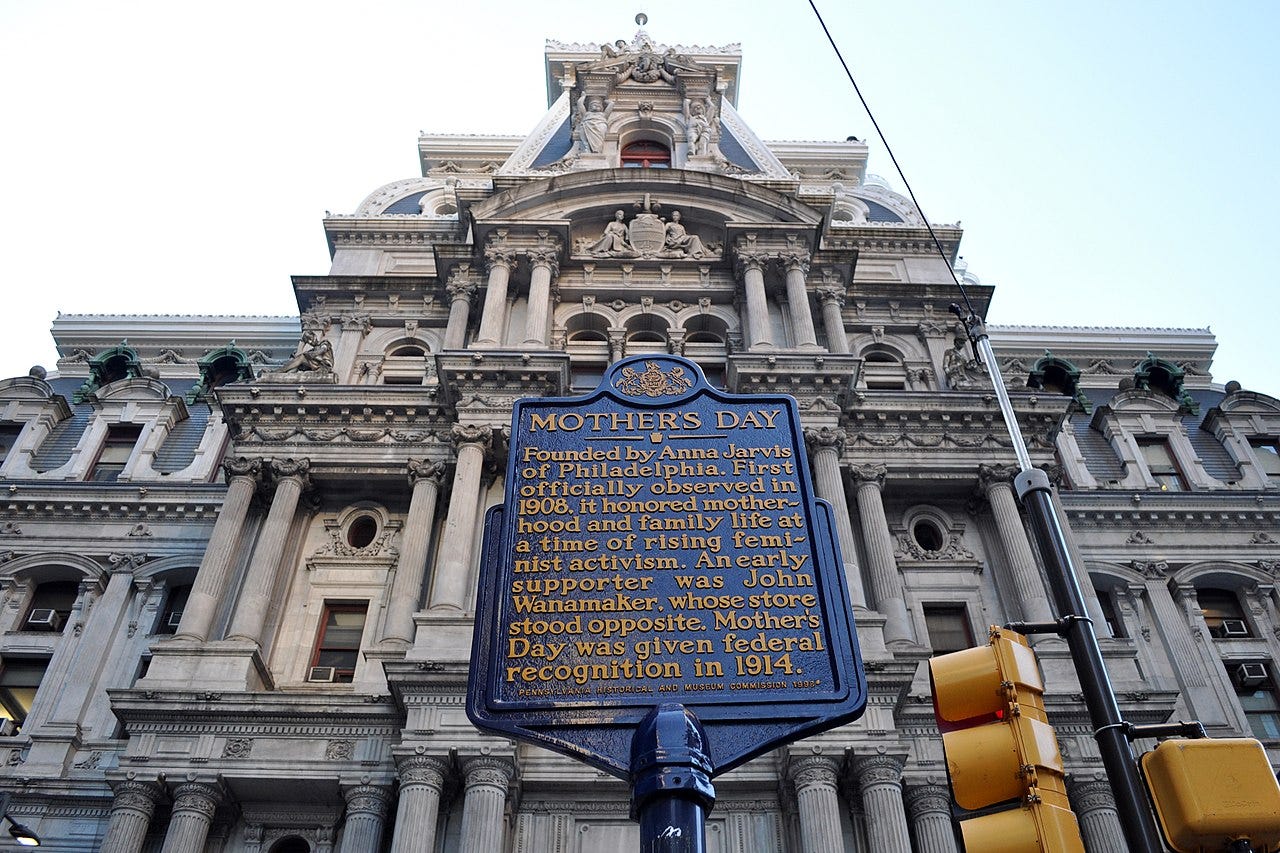
Over the next several years, hundreds of other American cities had similar celebrations, and in 1914, the U.S. Congress passed a joint resolution formally designating the second Sunday in May as “Mother's Day.” President Woodrow Wilson officially proclaimed it a national holiday on May 9, 1914.
Anna Jarvis originally conceived of Mother’s Day as a quiet, reverent occasion, so she was horrified when she saw greeting card companies, florists, confectioners, telephone companies, and department stores quickly turning it into a major commercial event. In Memorializing Motherhood: Anna Jarvis and the Struggle for Control of Mother's Day (2014), writer Katharine Lane Antolini documented how Jarvis led protest demonstrations outside florist shops and confectionaries and called for boycotts of Mother’s Day sales in department stores. She also attempted to sue groups that used the name “Mother’s Day” without her permission. And, finally, in perhaps the most fascinating development in the history of holidays, she even petitioned the government to rescind the national holiday status for the commemorative day she worked so hard to establish.
This week, take a few moments to reflect on the subject of Mothers and Motherhood. For subscribers whose mothers are deceased, consider offering a warm toast in her memory as you sit down to dinner. And for subscribers whose mothers are still living, please ask yourself this question: “On this Mother's Day, have I gone through the motions in a half-hearted, perfunctory way, or have I fully expressed how deeply I appreciate the role my mother has played in my life?”
To stimulate your thinking, here are ten of my favorite quotations on the subject:
Mothers are not the nameless, faceless stereotypes who appear once a year on a greeting card with their virtues set to prose, but women who have been dealt a hand for life and play each card one at a time the best way they know how. — Erma Bombeck
Mothering has left me with stretch marks. I have been stretched beyond what I could have imagined. — Kathy Callahan
There is no other closeness in human life like the closeness between a mother and her baby—chronologically, physically, and spiritually they are just a few heartbeats away from being the same person. — Susan Cheever
A mother’s love for her child is like nothing else in the world. It knows no law, no pity, it dares all things and crushes down remorselessly all that stands in its path. — Agatha Christie
A mother is not a person to lean on, but a person to make leaning unnecessary. — Dorothy Canfield Fisher
The mother-child relationship is paradoxical and, in a sense, tragic. It requires the most intense love on the mother’s side, yet this very love must help the child grow away from the mother, and to become fully independent. — Erich Fromm
No joy in nature is so sublimely affecting as the joy of a mother at the good fortune of a child. — Jean Paul (pen name of Johann Paul Richter)
Probably there is nothing in human nature more resonant with charges than the flow of energy between two biologically alike bodies, one of which has lain in amniotic bliss inside the other, one of which has labored to give birth to the other. The materials are here for the deepest mutuality and the most painful estrangement. — Adrienne Rich
No matter how old a mother is she watches her middle-aged children for signs of improvement. — Florida Scott-Maxwell
For the mother is, and must be, whether she knows it or not, the greatest, strongest, and most lasting teacher her children have. — Hannah Whitall Smith
For source information on these quotations, and many others on the topic of MOTHERS & MOTHERHOOD, go here.
Cartoon of the Week:
Answer to This Week’s Puzzler:
Glenda Jackson (1936 – 2023)
Dr. Mardy’s Observation of the Week:
Thanks for joining me again this week. See you next Sunday morning, when the theme will be “LAUGHTER.”
Mardy Grothe
Websites: www.drmardy.com and www.GreatOpeningLines.com
Regarding My Lifelong Love of Quotations: A Personal Note

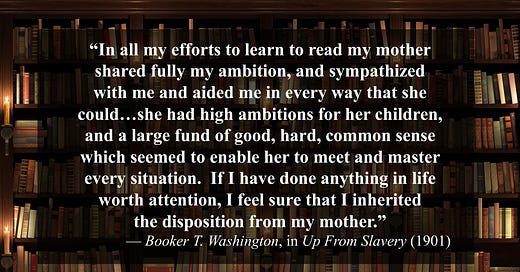



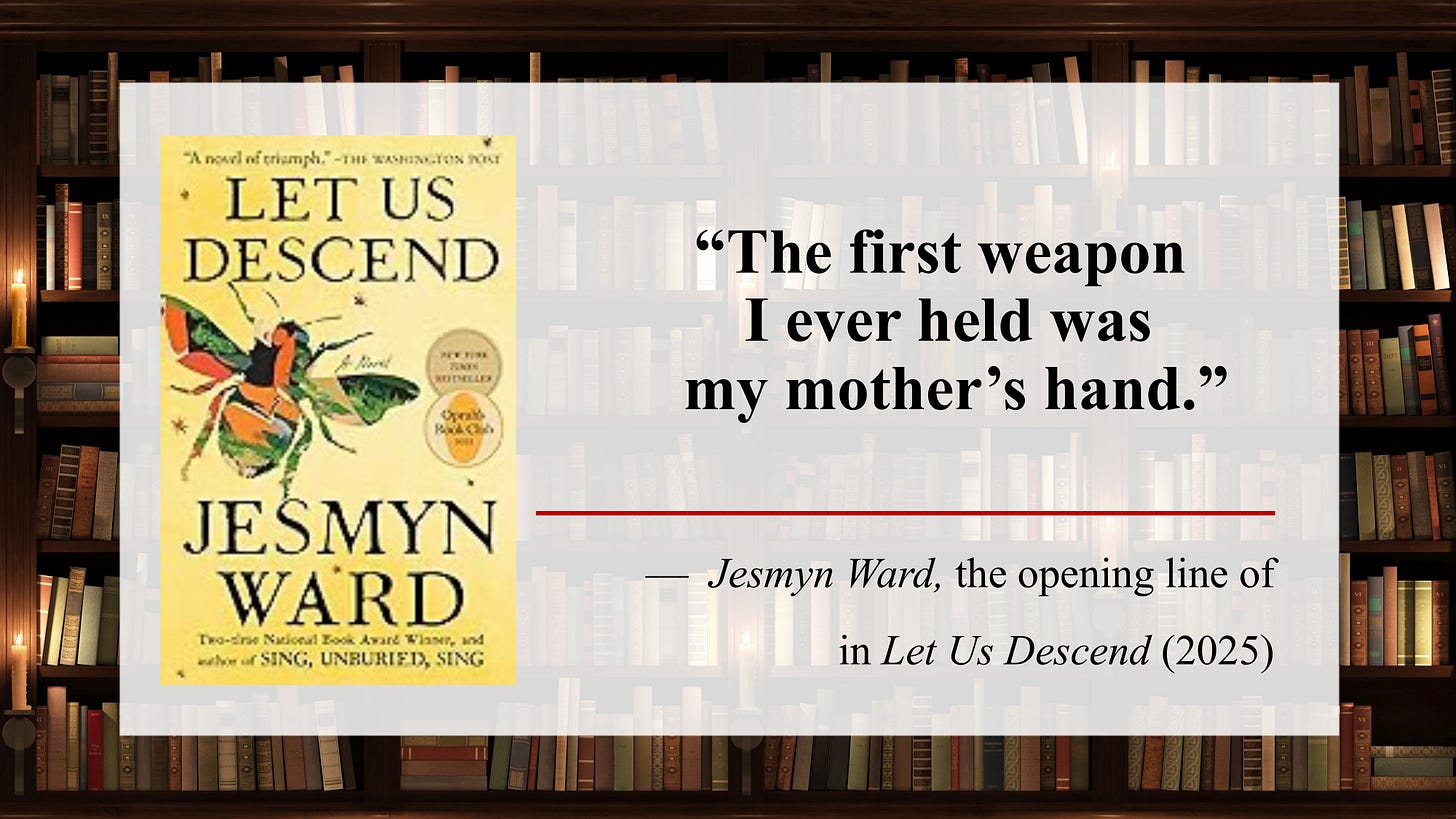

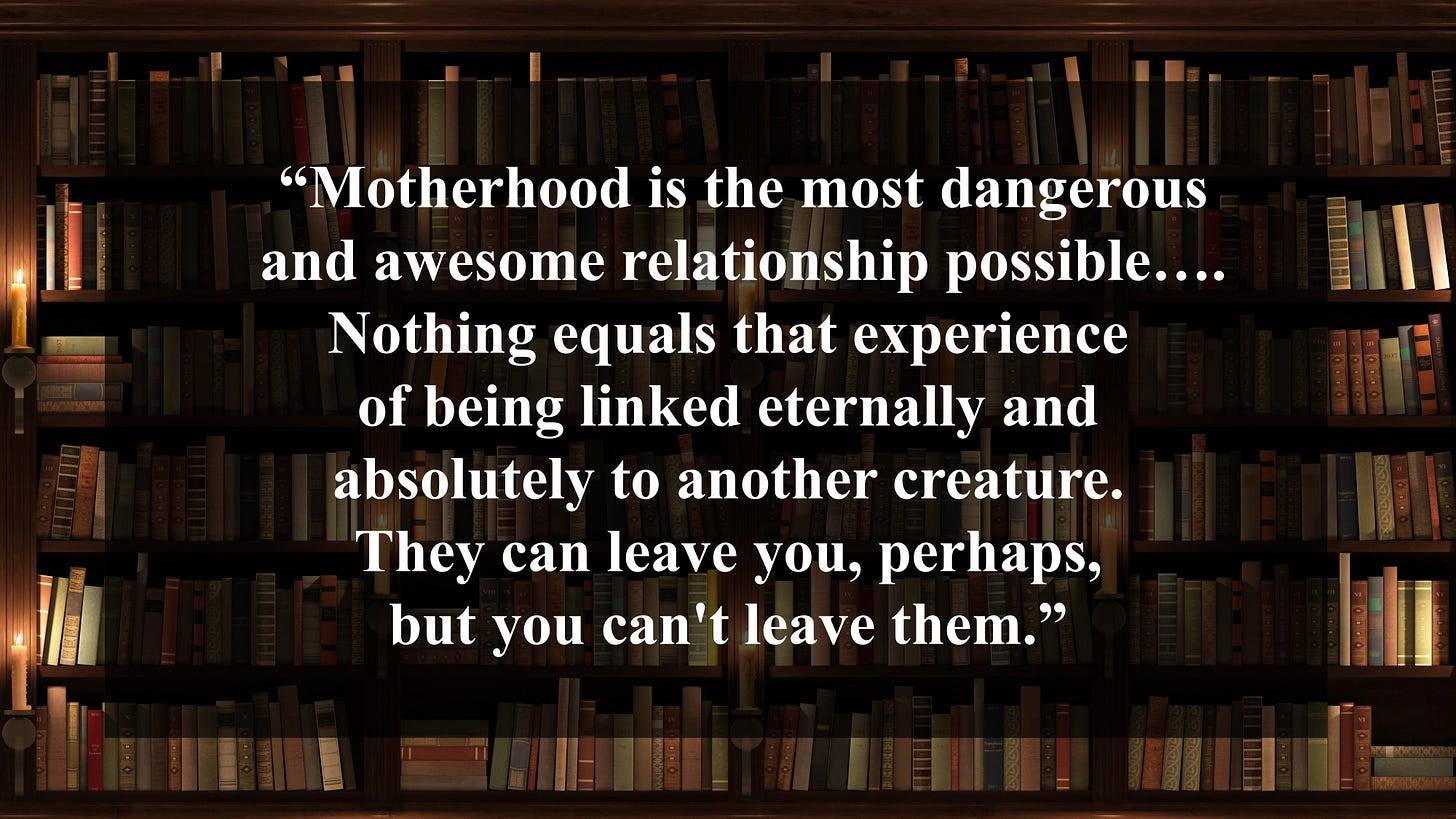
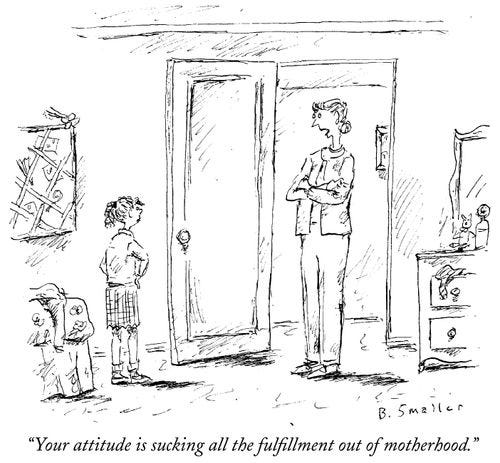
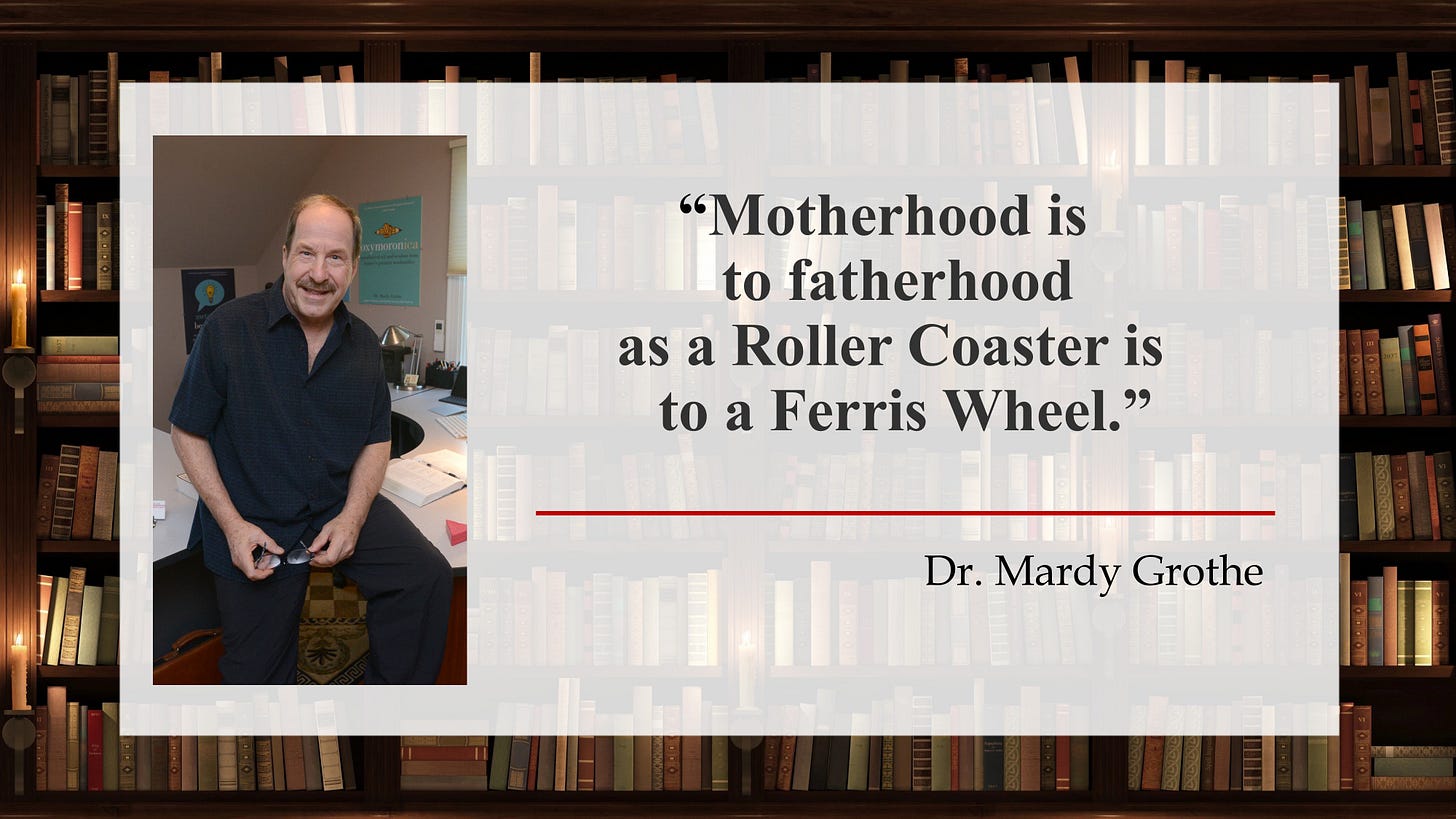
Good morning, Mardy! I love your quote the best!
I LOVED this week's cartoon!!! And the words of Erich Fromm. I believe that the only thing we as parents are required to do, is to raise our kids up to leave us and deal with life without us..... that's successful parenting..We must let them fail in order to succeed. Thank you Mardy.